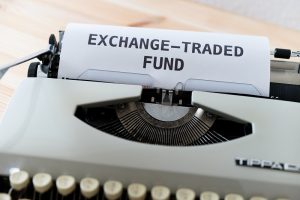Two Great ETFs For Dividend Investors
Investors looking for dividend income have a lot of options, but it is not always easy to find a good dividend stock — one from a company that not only consistently boosts its dividend payout but also generates sold returns.
Another option is to invest in an exchange-traded fund (ETF) that does the heavy lifting for you, pooling together the best dividend stocks into one portfolio. Two of the best dividend-paying ETFs are the Vanguard Dividend Appreciation ETF (NYMARKET:VIG) and the Schwab U.S. Dividend Equity ETF (NYMARKET:SCHD). What makes them stand out is not just their dividend but also the solid long-term returns they generate.
1 . Vanguard Dividend Appreciation ETF
The Vanguard Dividend Appreciation ETF, which has been around since 2006, tracks the performance of the S&P U.S. Dividend Growers Index. This index includes the stocks of companies that have a track record of consistently increasing their dividends every year for at least 10 consecutive years. This Vanguard dividend ETF also excludes real estate investment trusts (REITs), which typically have higher yields. It is market-cap weighted, but individual stocks are capped at 4% of the overall portfolio.
Thus, by its nature, the ETF seeks out stable companies with a history of raising their dividends. It holds about 314 stocks, with the largest being Microsoft (NASDAQ:MSFT), Apple (NASDAQ:AAPL), and Exxon Mobil (NYSE:XOM).
The Vanguard Dividend Appreciation ETF currently pays out a quarterly dividend of 77 cents per share and an annual payout of about $3.16 per share at a yield of roughly 2.1%. While the yield is definitely lower than some of the other dividend ETFs, what the fund gives up in yield, it makes up for in stability and returns.
In addition to the dividend, the ETF has posted an average annualized return of 8.2% over the past five years and 8% over the past 10 years. This year it is up nearly 4.7% year to date. As with all Vanguard funds, this dividend ETF has a dirt-cheap 0.06% expense ratio, which means the fees coming out of your returns are smaller with this one than with other ETFs.
2. Schwab U.S. Dividend Equity ETF
The Schwab U.S. Dividend Equity ETF tracks the Dow Jones U.S. Dividend 100 Index, which includes stocks with at least 10 years of dividend payouts, but not necessarily increases. The companies whose stocks are included in the ETF must also meet certain screens for market-cap size, liquidity and financial performance. Like the Vanguard ETF, this Schwab fund also excludes REITs.
From that pool of stocks, the index then screens for four criteria: cash flow to total debt, return on equity, dividend yield, and five-year dividend growth rate. The companies that meet those screens and have the highest yields are in the index, and by extension, this Schwab ETF.
The fund holds about 104 stocks and is market-cap weighted, but no stocks can be more than 4% of the total portfolio. Its three largest holdings are Amgen (NASDAQ:AMGN), Verizon (NYSE:VZ), and Broadcom (NASDAQ:AVGO).
The Schwab U.S. Dividend Equity ETF has a significantly higher yield than the Vanguard Dividend Appreciation Fund, at 3.7%, and it has a payout of 65 cents with an annual distribution of about $2.62 per share.
The Schwab ETF also has posted solid returns, with an annualized return of 6.3% over the past five years and 6.9% over the past 10 years. The returns are not as high as those of the Vanguard ETF, but the dividend payout is higher. The Schwab U.S. Dividend Equity ETF also has a low expense ratio of 0.06%.
There are certainly other dividend ETFs out there that have higher yields than these two, and we’ll certainly explore those down the road. However, the Vanguard Dividend Appreciation and Schwab U.S. Dividend Equity ETFs both offer stable dividends in addition to solid returns.
This post originally appeared at ValueWalk.com.
Category: Dividend Stocks To Buy?





